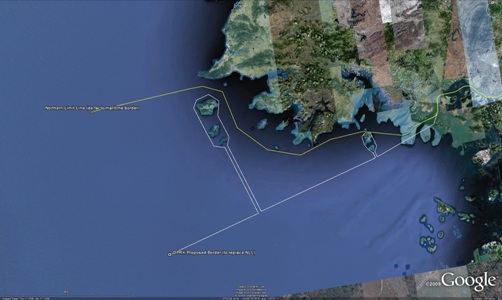The Council on Foreign Relations has published the Independent Task Force Report No. 64: U.S. Policy Toward the Korean Peninsula.
The publication web page is here (overview and task force members).
Download the report here (PDF).
Overview
As tensions on the Korean peninsula rise after an international investigation found that North Korea was responsible for the sinking of a South Korean warship, a Council on Foreign Relations (CFR) Independent Task Force warns that North Korea’s continued provocations pose a serious threat to its neighbors and that its nuclear weapons program must be stopped. “The United States must seek to resolve rather than simply manage the challenge posed by a nuclear North Korea,” asserts the Task Force.
In its report, U.S. Policy Toward the Korean Peninsula, the Task Force emphasizes that “despite the difficulty of the challenge, the danger posed by North Korea is sufficiently severe, and the costs of inaction and acquiescence so high, that the United States and its partners must continue to press for denuclearization.” The United States cannot risk “the potential spread of nuclear weapons to rogue states, terrorist groups or others—especially in the Middle East.”
The Task Force says that the United States also must provide leadership with its regional partners to “coordinate actions designed to contain the spillover effects of possible North Korean instability while insisting that North Korea give up its destabilizing course of action.” It recommends that contingency pla nning be prioritized: “Given the uncertainties and associated risks related to North Korea’s future, it is necessary and sensible for its neighbors to consider the possibility of volatility in North Korea and plan for its possible effects.”
The bipartisan Task Force, chaired by former special envoy for negotiations with North Korea Charles L. “Jack” Pritchard and former commander of UN Command/U.S. Forces Korea John H. Tilelli Jr., and directed by CFR Adjunct Senior Fellow Scott A. Snyder, is comprised of roughly two dozen distinguished experts representing a wide variety of backgrounds. The report commends the U.S.-South Korean partnership and applauds the close alliance coordination following the ship incident. The Task Force urges the passage of the South Korea-U.S. Free Trade Agreement, which it says is good for America and would send a strong message of support for South Korea.
While each member of the Six Party talks—China, Japan, North Korea, Russia, South Korea, and the United States—has its own concerns, “any hope of resolving the North Korean standoff will depend on all parties cooperating with one another and being firm with North Korea.” The report emphasizes that “Chinese cooperation is essential to the success of denuclearization on the Korean peninsula and to ensuring regional stability.”
The report makes several specific recommendations, including calling for the establishment of a dialogue with China about the future of the Korean peninsula, bilateral talks with North Korea regarding missile development, and close consultations with allies South Korea and Japan. The report recommends that the Obama administration prioritize its approach to North Korea in the following order.
* Prevent horizontal proliferation: “The United States and its allies should heighten vigilance against the possibility of a transfer of nuclear weapons technologies or fissile material from North Korea and strengthen the capacity to carry out effective counterproliferation measures.”
* Stop vertical proliferation: “North Korea’s unconstrained efforts to develop a missile delivery capability for its nuclear arsenal would dramatically expand its ability to threaten its neighbors and further complicate prospects for reversing its nuclear program.”
* Denuclearize: “The debate over nonproliferation versus denuclearization is a false choice; the United States and its partners can and must do both by containing proliferation while also pressing for denuclearization.”
The Task Force recommends that the United States seek ways to integrate North Korea into the international community, including through cultural and academic exchanges. “The Obama administration should change long-standing U.S. policies blocking North Korea’s participation in activities of international financial institutions,” notes the report. It also condemns North Korea’s abysmal human rights record: “North Korea’s shameful human rights situation and failure to meet the needs of its people is a human tragedy that should be addressed by U.S. humanitarian assistance and other measures to improve human rights conditions inside North Korea.”

